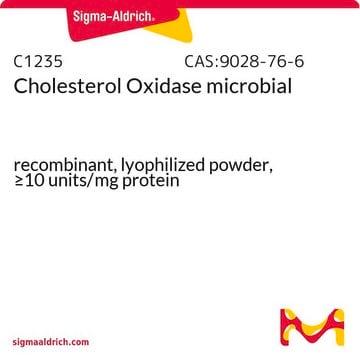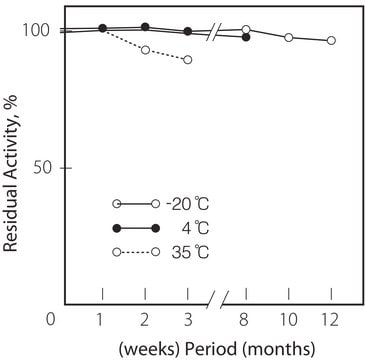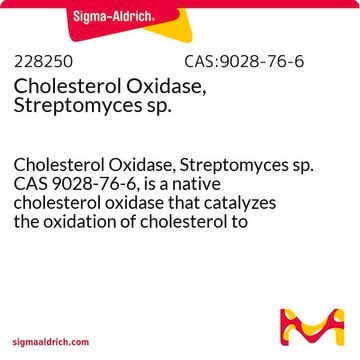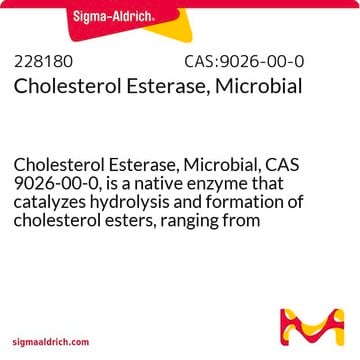C8868
Cholesterol Oxidase from microorganisms
lyophilized powder, ≥50 units/mg protein, recombinant, expressed in E. coli
Synonym(s):
Cholesterol: oxygen oxidoreductase
About This Item
Recommended Products
recombinant
expressed in E. coli
form
lyophilized powder
specific activity
≥50 units/mg protein
mol wt
64 kDa
composition
Protein, ≥15% biuret
storage temp.
−20°C
Application
Biochem/physiol Actions
Physical properties
Unit Definition
Physical form
signalword
Danger
hcodes
pcodes
Hazard Classifications
Resp. Sens. 1
Storage Class
11 - Combustible Solids
wgk_germany
WGK 3
flash_point_f
Not applicable
flash_point_c
Not applicable
ppe
Eyeshields, Gloves, type N95 (US)
Certificates of Analysis (COA)
Search for Certificates of Analysis (COA) by entering the products Lot/Batch Number. Lot and Batch Numbers can be found on a product’s label following the words ‘Lot’ or ‘Batch’.
Already Own This Product?
Find documentation for the products that you have recently purchased in the Document Library.
Customers Also Viewed
Protocols
Enzymatic activity assay for cholesterol oxidase, excluding specific product numbers, providing guidelines for accurate cholesterol oxidase assays.
Our team of scientists has experience in all areas of research including Life Science, Material Science, Chemical Synthesis, Chromatography, Analytical and many others.
Contact Technical Service













